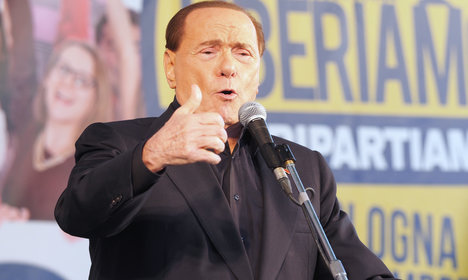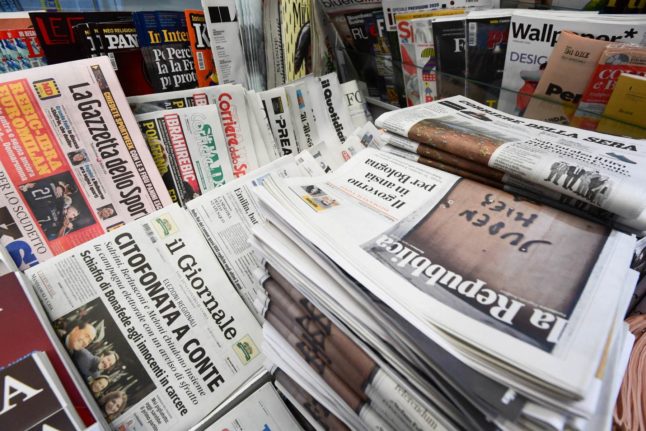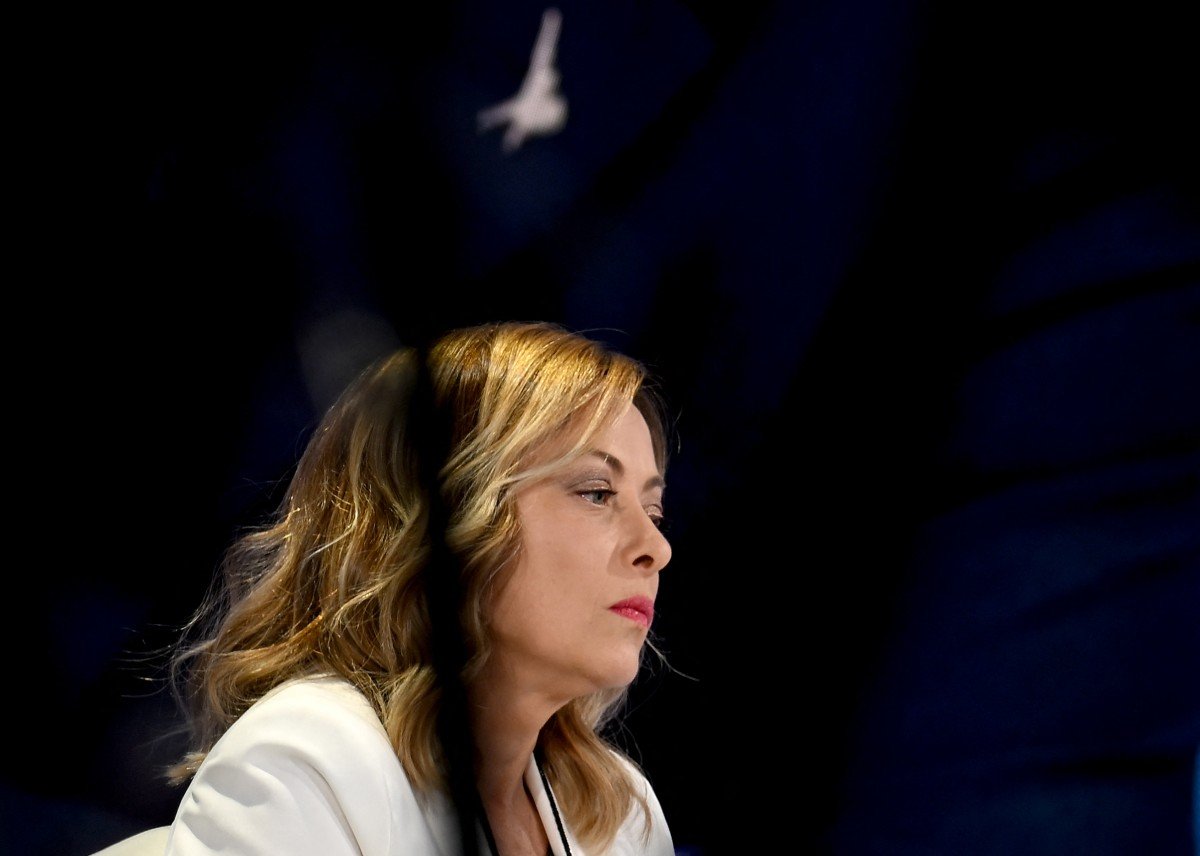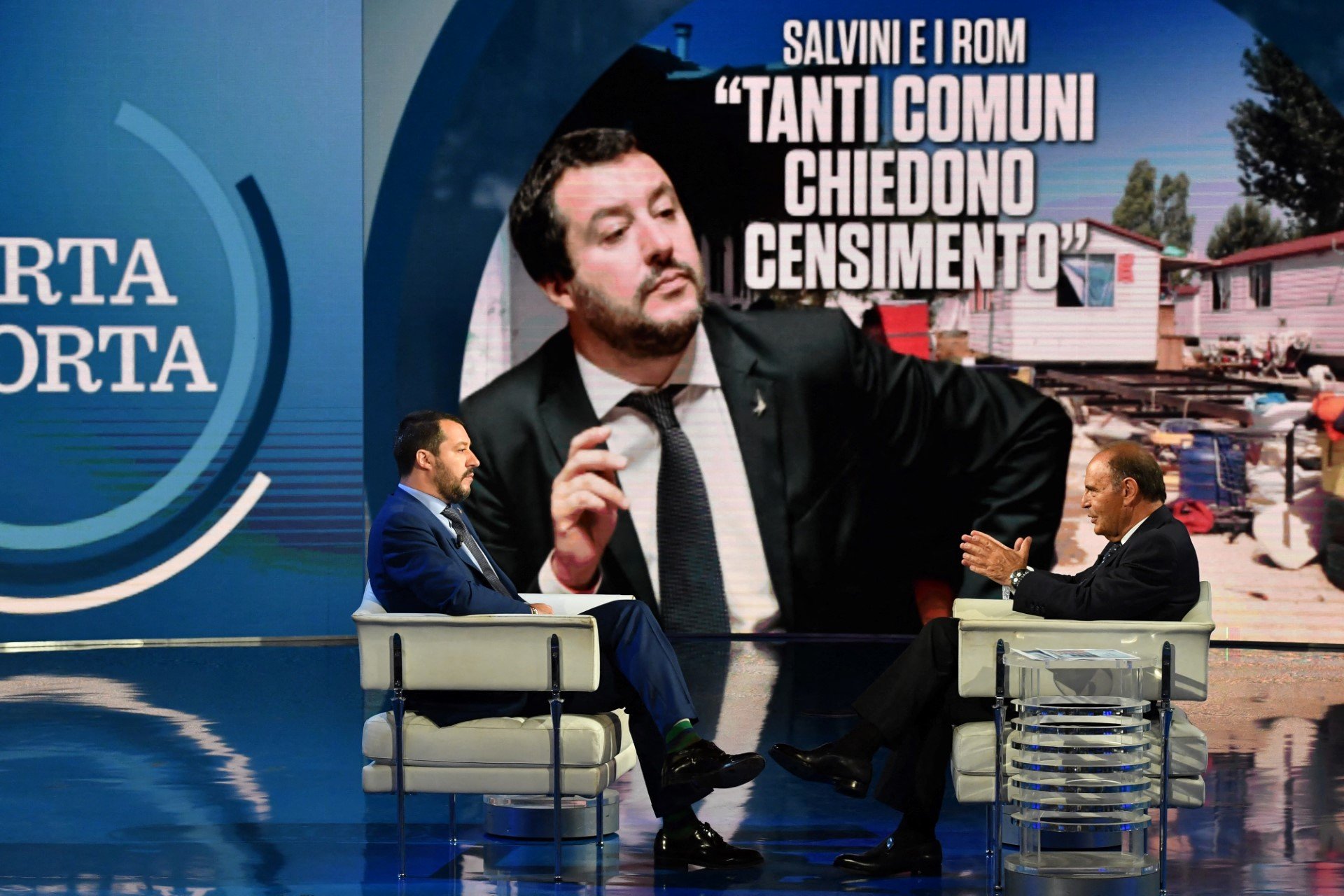The controversial 79-year-old – whose Forza Italia party ranks fourth in polls – addressed thousands of demonstrators during a gathering organized by the anti-immigrant Northern League in the northern city of Bologna.
Berlusconi proposed a programme with “fewer taxes, less state involvement and less Europe” as well as “more help to those who need it, more guarantees and more security”.
The ex-prime minister and media tycoon tossed out a series of questions to the crowd, asking them if they wanted a Europe that imposed taxes, sanctions and austerity.
“Are you still willing to support a Europe that imposes taxes and austerity?” he asked, with the demonstrators giving a resounding “no” in response.
“Are you prepared to support a Europe that imposes sanctions on Russia?” he continued, adding that such measures would have knock-on effects for the Italian economy.
The anti-EU rhetoric comes as a dramatic turnaround for Berlusconi who only three weeks ago participated in the European People's Party congress in Madrid, where he met with German Chancellor Angela Merkel in what he presented as a return to the international scene.
Some see Berlusconi's back and forth as a sign the veteran politician is out of touch.
“The Forza Italia leader is confused, indecisive, he no longer understands what is going on in the country,” columnist Claudio Tito wrote in the daily La Repubblica.
The Northern League, led by Berlusconi's rival, 42-year-old Matteo Salvini, is often compared to the French far-right National Front party. Both are known for their eurosceptic and anti-immigrant stance.
With more than 140,000 migrants and refugees arriving in Italy this year alone, the country has been on the frontline of Europe's biggest migration crisis since World War II.
The record influx has provided a boost in support for populist right-wing parties in countries across the continent.
Italians will vote in local elections next year, with legislative polls scheduled for 2018.
Sunday's rally was marked by clashes between security forces and far-left youths denouncing the Northern League demo in a city often linked with the Italian left.
Berlusconi has been hit by a string of legal woes in recent years, including being sentenced to three years for bribing a senator.
He will, however, not have to serve any time in prison because of legal technicalities, according to his lawyer Niccolo Ghedini.





 Please whitelist us to continue reading.
Please whitelist us to continue reading.
Member comments